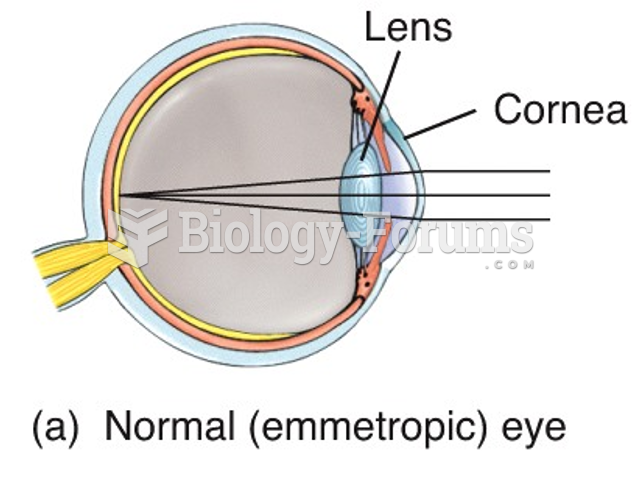|
|
|
Studies show that systolic blood pressure can be significantly lowered by taking statins. In fact, the higher the patient's baseline blood pressure, the greater the effect of statins on his or her blood pressure.
Multiple sclerosis is a condition wherein the body's nervous system is weakened by an autoimmune reaction that attacks the myelin sheaths of neurons.
Drying your hands with a paper towel will reduce the bacterial count on your hands by 45–60%.
When Gabriel Fahrenheit invented the first mercury thermometer, he called "zero degrees" the lowest temperature he was able to attain with a mixture of ice and salt. For the upper point of his scale, he used 96°, which he measured as normal human body temperature (we know it to be 98.6° today because of more accurate thermometers).
Elderly adults are at greatest risk of stroke and myocardial infarction and have the most to gain from prophylaxis. Patients ages 60 to 80 years with blood pressures above 160/90 mm Hg should benefit from antihypertensive treatment.
 Retinopathy. Illustration of a normal retina (left) and a diseased retina (right). The diseased reti
Retinopathy. Illustration of a normal retina (left) and a diseased retina (right). The diseased reti
 Visual tracking of a pendulum by a normal control subject (top) and three schizophrenics. (Adapted ...
Visual tracking of a pendulum by a normal control subject (top) and three schizophrenics. (Adapted ...





